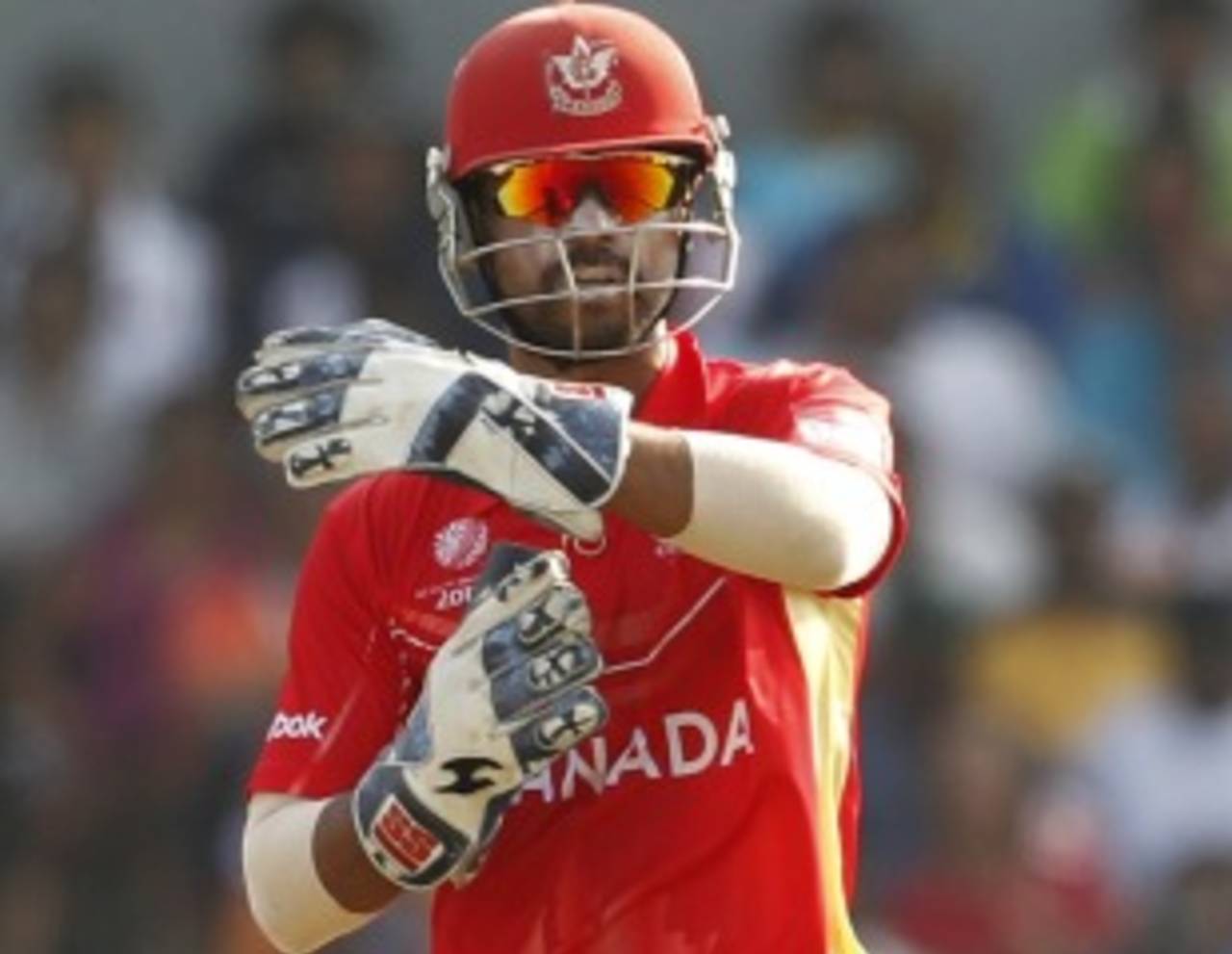In the space of three months, with the England-India series serving as the catalyst, the ICC's executive board comprising its ten Full Member nations has gone back on the mandatory application of the Decision Review System in Tests and ODIs, and made it subject to bilateral agreements between the participating boards.
The decision, which followed sharp and sustained criticism of the DRS by India, marks a complete reversal from the agreement reached by the ICC's executive board at its annual conference in Hong Kong in June, when infra-red cameras and audio tracking were included in the basic requirements for the DRS. ICC chief executive Haroon Lorgat explained the turnaround at a media briefing in Dubai, saying, "There are quite a number of countries who favour it and there are some who have got concerns about its reliability."
In Tuesday's announcement the ICC also struck Hot Spot off its list of basic requirements for the DRS, confirming "the situation that existed before is now restored". When the DRS was first instituted bilaterally in 2008, the basic requirements included a ball tracker and a clear sound mike, as a result of which LBWs were also included under the review system. In this year's three-month experiment with a mandatory DRS, however, the referral of LBWs had been omitted from the system, due to the absence of a ball tracker in the mandatory requirements.
When asked whether the ICC was disappointed that they had chosen to return to a three-year-old stance on the use of technology, Lorgat said, "It's also a recognition that Hot Spot was not as reliable as we would like it to be ..."
The ICC will, however, still use the DRS at all its events, and was "confident about its future". Lorgat said the ICC understood the importance of sticking with the DRS. "We do get the benefit of more correct decisions and we can rectify blatant errors, so there is a use for DRS. But some members are not convinced by the incidents of ... call it the failure of the technology."
The England-India series in particular, Lorgat said, had provided evidence about Hot Spot that was "not comforting". "There were a number of occasions where Hot Spot did not detect a traceable mark," he said, adding there were members other than the BCCI, the most strident critic of the DRS, who also expressed their concerns about the technology at the executive board meeting.
"This was a board decision that came out through considerable debate and eventually there was a unanimity that we need to revert, and let those who are comfortable use it and give those who are not the option to decide not to use it."
One of the consequences of the reversal of the DRS's mandatory inclusion in two formats of international cricket would be the inability to get a central uniform sponsor for the technology.
The cost of the DRS is estimated to be approximately $5000 a day according to the ICC, making it unaffordable for some nations in Test series. The previous ruling about mandatory inclusion had made an exception for commercial handicaps among member boards. The current Bangladesh-West Indies series, for example, is being played without DRS.
Lorgat said, "If it's not universally used across the board we will not be able to secure a sponsor." Ironically, on Tuesday the PCB became the first board to announce the application of a
sponsored DRS in its offshore series against England and Sri Lanka, to be played in the UAE this winter.
The ICC's decision has once again left DRS funding to be juggled among home boards, broadcasters and technology providers. Lorgat said, "The previous position was that we make a contribution, and we will continue to work with the members and broadcasters to see how we can best employ the use of DRS."
Research and development in ball-tracking, in what he called a "pioneering technology", will continue. Lorgat said the constant changes around the DRS was a phase the ICC was bound to go through "in terms of developing and working with technology suppliers".
"Some time in the future, it will prove to be more reliable," he said. "Look at all the equipment we have got today, it is a far cry to what we had a few years ago."
When asked what it would take to make the DRS mandatory again and whether any minimum standards had been set down for the technology providers, the ICC's response stated that there was no time frame, "just that research into technology will continue".
In Hong Kong, the BCCI were unable to get the support of the required number of executive board members required to prevent the DRS from being made mandatory. The inclusion of Hot Spot in place of the ball tracker on the list of basic requirements was seen as a compromise then. However, India's recently-concluded disastrous Test series against England, which England won 4-0, included a few contentious Hot Spot decisions and has turned the BCCI away from the thermal imaging cameras as well.
At the Indian board's annual general meeting last month, president N Srinivasan said the current technology was simply not good enough after Hot Spot proved inconclusive on a few occasions on the tour and that the board would raise the issue at the next ICC meeting. India's captain MS Dhoni also voiced his displeasure at the handling of the DRS on more than one occasion during the tour. Over the previous two ICC meetings in Dubai, evidently, the BCCI's arguments around the DRS have been extremely persuasive.
